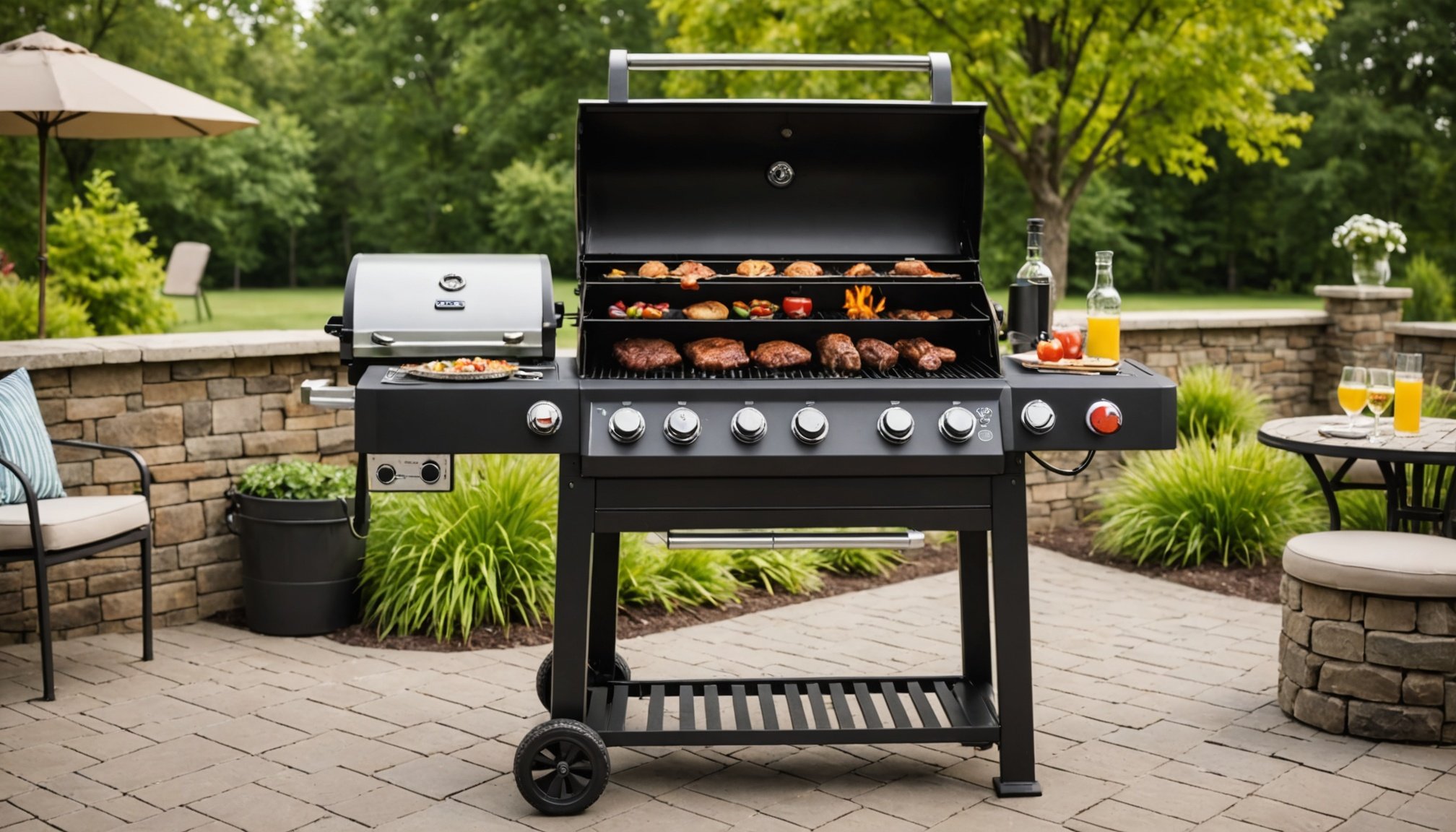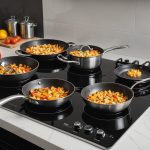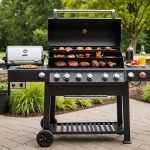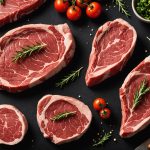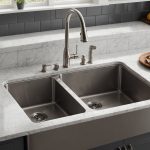Finding the right BBQ grill can elevate your backyard gatherings from ordinary to extraordinary. With many options available, it’s essential to focus on key factors that can affect your grilling experience. From materials and size to fuel type and cooking versatility, understanding these elements is vital. This guide will help you make an informed choice, ensuring that your culinary adventures are not only delicious but also enjoyable for every guest. Discover how to select the perfect high-quality grill tailored to your grilling needs.
Key Factors in BBQ Grill Selection
Choosing the right BBQ grill can be a daunting task with so many options available. To make an informed decision, consider these key factors:
This might interest you : Choosing the Ultimate Kitchen Sink Material: The Best Options for Durability and Easy Cleaning
Materials Used in Construction
The quality of materials is crucial for a long-lasting BBQ grill. Opt for grills made from stainless steel or cast iron, as these materials offer durability and resistance to rust. A grill with a solid build ensures it can withstand the elements and frequent use.
This might interest you : Explore delicious cassoulet varieties for cozy dinners
Heat Distribution Capabilities
Even heat distribution is essential for perfectly cooked meals. High-quality BBQ grills often feature multiple burners or ceramic briquettes to ensure consistent heat across the cooking surface. This feature minimizes the risk of hot spots and uneven cooking, providing a more enjoyable grilling experience.
Size and Cooking Area Requirements
Assess your cooking needs by considering the size and cooking area of the grill. If you frequently host gatherings, a larger grill with a spacious cooking surface is ideal. Conversely, a compact grill may suffice for smaller households.
- Materials: Stainless Steel, Cast Iron
- Heat Distribution: Multiple Burners, Ceramic Briquettes
- Size: Large for Gatherings, Compact for Small Households
By focusing on these ideal grill features, you can select a BBQ grill that meets your needs and enhances your outdoor cooking endeavors.
Fuel Types and Their Impact on Cooking
Understanding the fuel types available for BBQ grills can significantly influence your cooking experience. Each type offers unique benefits and challenges, affecting flavor, convenience, and cooking style.
Overview of Common Fuel Types
Choosing between charcoal, gas, and pellet grills involves considering your cooking preferences. Charcoal grills are renowned for imparting a smoky flavor, while gas grills offer convenience and quick heating. Pellet grills combine the benefits of both, using wood pellets to provide a rich, smoky taste with the ease of gas controls.
Pros and Cons of Gas Grills
Gas grills are favored for their ease of use and quick ignition. They allow precise temperature control, making them ideal for various cooking techniques. However, they may lack the authentic smoky flavor that some enthusiasts crave.
-
Pros:
-
Quick heating
-
Easy temperature control
-
Low maintenance
-
Cons:
-
Less smoky flavor
-
Requires gas supply
Benefits of Charcoal Grilling
Charcoal grilling is celebrated for its ability to deliver a unique, smoky flavor. It offers versatility in cooking styles, from searing to slow cooking. Despite the longer setup time, many find the flavor payoff worth the effort.
- Rich, smoky taste
- Versatile cooking techniques
- Traditional grilling experience
Essential Features to Enhance Your BBQ Experience
Understanding the importance of temperature control features is crucial for mastering the art of grilling. Precise temperature regulation allows you to explore various cooking styles, ensuring your BBQ grill meets your culinary needs. Consider models with built-in thermometers or digital controls for accurate monitoring.
Side burners and rotisserie options offer unparalleled convenience during your grilling sessions. Side burners can be used for preparing sauces or side dishes, while a rotisserie adds versatility, allowing you to roast meats evenly. These additional grill functions can elevate your outdoor cooking experience, providing more options beyond traditional grilling.
Must-Have Accessories for Optimal Grilling
To fully utilize your BBQ grill, investing in the right accessories is essential. Here are some must-haves:
- Grill Brushes: Essential for maintaining cleanliness and extending the life of your grill.
- Meat Thermometers: Ensure your meats are cooked to perfection.
- Grill Covers: Protect your investment from weather elements.
These BBQ grill features and accessories not only enhance functionality but also ensure a seamless and enjoyable grilling experience. By incorporating these elements, you can transform your BBQ setup into a comprehensive outdoor kitchen, ready to impress your guests with delicious and perfectly cooked meals.
Comparing Popular BBQ Grill Models
Exploring the top BBQ grills can aid in making an informed purchase decision. This section delves into the strengths and weaknesses of leading models.
Overview of Leading Brands
When considering BBQ grill comparisons, several brands consistently emerge as favorites. Weber, Traeger, and Char-Broil are among the top contenders. Weber is praised for its durability and versatile cooking options. Traeger offers innovative pellet grills that combine flavor and convenience. Char-Broil is known for affordability and reliable performance.
Feature Comparison of Popular Models
A thorough grill model review reveals distinct features across models. Weber grills often boast superior heat retention and even cooking. Traeger models excel with their digital controls and unique wood pellet system. Char-Broil grills typically feature easy-to-clean surfaces and quick ignition systems.
| Brand | Key Features |
|---|---|
| Weber | Durable, versatile, even cooking |
| Traeger | Digital controls, wood pellet flavor |
| Char-Broil | Affordable, easy-to-clean, quick start |
User Reviews and Ratings
User reviews play a critical role in BBQ grill comparisons. Weber is frequently lauded for quality and longevity. Traeger receives praise for flavor enhancement and ease of use. Char-Broil garners positive feedback for value and accessibility, making it a popular choice for budget-conscious buyers.
Maintenance Tips for Longevity and Performance
Ensuring your BBQ grill remains in optimal condition requires consistent care and attention.
Regular Cleaning Practices
Regular cleaning is vital for BBQ grill maintenance. After each use, remove food residues and grease to prevent buildup that can affect performance. Use a stiff wire brush to clean the grates, and occasionally, disassemble the grill to clean burners and other components. This practice not only extends grill life but also enhances cooking efficiency.
Importance of Seasonal Maintenance Checks
Conducting seasonal maintenance checks is essential for sustaining your grill’s performance. Before peak grilling seasons, inspect for any wear and tear, especially in burners and ignition systems. Replace faulty parts promptly to maintain safety and efficiency. Regular checks ensure your grill is ready for every BBQ gathering.
Storage Tips for Different Fuel Types
Proper storage is crucial for different fuel types. For gas grills, ensure propane tanks are disconnected and stored in a well-ventilated area. Charcoal grills should be emptied of ash and stored in a dry place to prevent rust. Pellet grills require the hopper to be emptied to avoid moisture damage.
- Gas Grills: Disconnect and ventilate
- Charcoal Grills: Empty ash, store dry
- Pellet Grills: Empty hopper, avoid moisture
Following these grill care tips can significantly extend the life of your BBQ grill, ensuring it performs optimally for years to come.

